Faculty & Staff
Our Global Infectious Disease faculty have a wealth of experience in global health, policy, epidemiology, modeling, and other elements of infectious disease research and practice. Take a look at some of their current research and projects.
Note to PhD prospects: Not all faculty take PhD students. Please reach out to individual faculty members to ascertain whether they are open to new PhD students.
Executive Committee
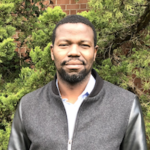
Babatunji Oni, M.D.
Senior Program Director; Professor; Director of Graduate Studies, Global Infectious Disease Master’s Program
bo186@georgetown.edu
Dr. Babatunji Oni is a physician with training in business administration, public health, and project management committed to the cause of expanding global health equity and improving the quality of clinical care and outcomes.

Steven Singer, Ph.D.
Professor; Director of Graduate Studies, Global Infectious Disease Ph.D. Program
sms3@georgetown.edu
Dr. Steven Singer’s research is focused on understanding mucosal immunity and applying that understanding to improve human and animal health. His laboratory specializes in experimental studies with the protozoan parasite Giardia duodenalis.

Matthew Kavanagh, Ph.D.
Assistant Professor and Director, Global Health Policy & Politics Initiative, O’Neill Institute
mk1915@georgetown.edu
Dr. Matthew Kavanagh works at the intersection of global health, law, and political economy. His research and policy work focus on the drivers of access to healthcare and medicines in low- and middle-income countries and the impact of human rights and constitutional protections on health outcomes.

Claire Standley, Ph.D.
Associate Research Professor
cjs322@georgetown.edu
Dr. Claire Standley’s research focuses on the analysis of health systems strengthening and international capacity building for public health, with an emphasis on prevention and control of infectious diseases in both humans and animals, as well as public health emergency preparedness and response.
*Dr. Standley will not be recruiting a doctoral student for the upcoming cycle.Faculty

Shweta Bansal, Ph.D.
Associate Professor
sb753@georgetown.edu
Dr. Shweta Bansal’s laboratory focuses on the social interactions that facilitate infectious disease transmission between hosts. The goal is to understand how social behavior and population structure shape infectious disease transmission and how knowledge of such processes can improve disease surveillance and control.

Katherine Robsky, Ph.D., MPH
Assistant Professor, Epidemiology Team Lead
Dr. Katherine Robsky, Ph.D., MPH, is a Research Assistant Professor in the Division of Internal Medicine, Department of Medicine, at the Georgetown University Medical Center and the Lead for Epidemiology, Surveillance, and Data Science at the Center for Global Health Practice and Impact. She is an infectious disease epidemiologist with additional interests in the application of implementation science to improve global health equity and the development of in-country research capacity.

Margaret Baker, Ph.D., M.Sc.
Associate Professor
mcb93@georgetown.edu
Dr. Margaret Baker is an Associate Professor in the Department of Global Health at Georgetown University. She has over twenty years of experience in global health, focusing on neglected tropical diseases (NTDs). Her work includes roles at RTI International, the UK government, and the Liverpool School of Tropical Medicine, with fieldwork in Vanuatu and the Dominican Republic. Dr. Baker directs an experiential learning course, serves on the editorial board of the International Health Journal, and consults for global health organizations.
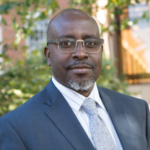
Deus Bazira, Dr.P.H.
Associate Professor
db1432@georgetown.edu
Dr. Deus Bazira is the Director of the Center for Global Health Practice and Impact at Georgetown. He has more than 25 years of experience in global health and health systems, strengthening with fieldwork experience in more than 15 countries spanning health policy development, health sector regulation, and public health programming.

Rebecca Katz, Ph.D.
Professor
rebecca.katz@georgetown.edu
Dr. Rebecca Katz’s research is focused on global health security, public health preparedness and health diplomacy. Much of her work focuses on the domestic and global implementation of the International Health Regulations and global governance of public health emergencies.
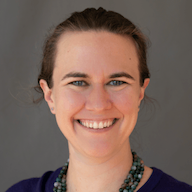
Stephanie Eaneff
Senior Biostatistician & Research Professor
sde31@georgetown.edu
Stephanie is a statistician and a research instructor with the Georgetown University Center for Global Health Science and Security. She develops, documents, and evaluates data-driven systems in healthcare and public health. In this work, Steph collaborates closely with healthcare providers, legal experts, and health systems researchers to use data and emerging AI/ML technologies to inform real-world questions.

Jishnu Das, Ph.D.
Professor
jd1885@georgetown.edu
Dr. Jishnu Das is a professor at the McCourt School of Public Policy and the Walsh School of Foreign Service at Georgetown University. Jishnu’s work focuses on health and education in low and middle-income countries, with an emphasis on social markets, or common, but complex, conflagrations of public and private education and health providers operating in a small geographical space.
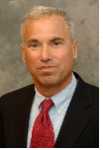
Jesse Goodman, M.D.
Professor
jlg251@georgetown.edu
Dr. Jesse Goodman directs Georgetown COMPASS, which focuses on science based policy and research to address unmet public health needs with an emphasis on product development and access and antimicrobial resistance and stewardship.
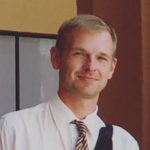
Dr. Christian John Hunter, MD
Professor
Current research activities include funded projects around Human Physiology education, student safety in high risk environments, novel technology for assessment of malnutrition in children and Snakebite injury.

Charles Holmes, M.D.
Associate Professor
ch1184@georgetown.edu
Dr. Charles Holmes leads a multi-disciplinary policy focused research group testing large-scale strategies to improve information for public health decision-making and the development of more effective and efficient models of healthcare delivery in low resource settings, and practices medicine on the infectious disease service.
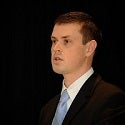
John Kraemer, J.D.
Associate Professor
jdk32@georgetown.edu
Dr. John Kraemer’s work focuses on the intersection of empirical evidence and public health policy. Substantively, he mainly studies women and children’s health in rural populations in sub-Saharan Africa and road safety for vulnerable road users.

Peter Armbruster, Ph.D.
Davis Family Distinguished Professor
paa9@georgetown.edu
Research in Dr. Peter Armbruster’s laboratory is focused on understanding processes of phenotypic evolution in natural populations and the molecular bases of adaptation.

Sivan Leviyang, Ph.D.
Associate Professor
sr286@georgetown.edu
Dr. Sivan Leviyang’s laboratory centers on modeling viral infection and immune response. The viral work mostly involves modeling early HIV infection with the goal of improving the understanding of the early CTL and antibody response and their effect on intrahost HIV evolution and pathogenesis.

Christopher Loffredo, Ph.D.
Professor
cal9@georgetown.edu
Dr. Christopher Loffredo’s research focuses on environmental and genetic causes of cancer and birth defects, and especially on the roles that genetics play in mediating the risks from environmental chemical exposures.

Mark Meyer, Ph.D.
Assistant Professor
mjm556@georgetown.edu
Dr. Mark Meyer’s primary areas of methodological research are functional data analysis, wavelet and spline-based regression, categorical data analysis, longitudinal data analysis, Bayesian statistics, and environmental statistics.

John Monahan, J.D.
Senior Advisor to the President for Global Health
jm3@georgetown.edu
Professor John Monahan is the Senior Advisor for Global Health to Georgetown University President John J. DeGioia; Senior Fellow, McCourt School of Public Policy; and Senior Scholar, O’Neill Institute for National and Global Health Law.

Martha Nelson, Ph.D.
Adjunct Associate Professor
martha.nelson@georgetown.edu
Dr. Nelson is a computational biologist with the National Institutes of Health who studies pathogen evolution. She uses large-scale genetic data to study rapidly evolving RNA viruses at the human-animal interface, including coronavirus and influenza. (Please note that adjunct professors do not take PhD students.)

Radhakrishnan Padmanabhan, Ph.D.
Professor
rp55@georgetown.edu
Dr. Padmanabhan’s laboratory has been studying the basic mechanisms of dengue virus RNA translation and replication and 5’-capping using membrane-bound complexes isolated from infected cells. Using proteomics approach, they are working on identification of viral and host proteins in the purified membrane-bound replication complexes that are active in the in vitro replication assay.

Michael Plankey, Ph.D.
Professor
mwp23@georgetown.edu
Dr. Michael Plankey’s research expertise has focused on the methodological approaches to analyze complex longitudinal data related to the syndemic production of social, psychological and behavioral risk factors and HIV health outcomes among sexual minority and race/ethnicity minority men and women.
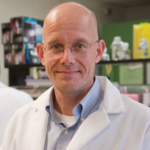
Paul Roepe, Ph.D.
Professor
Paul.Roepe@georgetown.edu
Dr. Paul Roepe’s laboratory hopes to elucidate mechanisms of resistance to cytotoxic drugs, so that better therapy can be developed, and to also design, synthesize and test new drugs based on that information.

Ronda Rolfes, Ph.D.
Associate Professor
rolfesr@georgetown.edu
Dr. Ronda Rolfes’ research group is interested in how microbial cells sense environmental conditions and how they use that information to change gene expression to affect cell morphology and physiology.
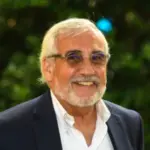
Vincent Turbat, Ph.D., M.S.
Associate Professor
vmt24@georgetown.edu
Dr. Vincent Turbat began his career as a junior lecturer/researcher in economics in 1972. He later joined the World Bank as a health economist, focusing on health sector programs and operations in East Asia and Africa. After retiring in 2010, he returned to teaching, researching, and consulting. Dr. Turbat holds a PhD from the University of Aix-Marseille II.

Christian Wolf, Ph.D.
Professor
cw27@georgetown.edu
Research in Dr. Christian Wolf’s research group is very interdisciplinary and includes organic reaction development, green chemistry, catalysis, chirality, optical sensing, high-throughput screening methodology and drug discovery.

Michael Stoto, Ph.D.
Professor
stotom@georgetown.edu
Dr. Michael Stoto’s research includes methodological topics in epidemiology and statistics including systematic reviews/meta-analysis and other analytical methods for comparative effectiveness research, community health assessment, evaluation methods, and performance measurement.

Felice Apter, Ph.D.
Adjunct Professor
fma67@georgetown.edu
With more than 30 years of experience in biomedical science and global health policy and programming, Dr. Felice Apter has deep knowledge in advancing complex international health efforts across governmental, non-governmental, academic, and philanthropic organizations. (Please note that adjunct professors do not take PhD students.)
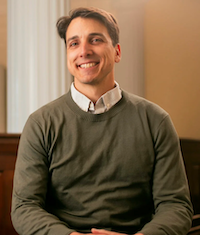
John Quattrochi, Ph.D.
Associate Teaching Professor
john.quattrochi@georgetown.edu
His research interests include global health and sustainable development, with a focus on interventions to improve the well-being of vulnerable populations affected by fragility, conflict, and violence, particularly in the Democratic Republic of Congo. He has studied cash-like vouchers; water, sanitation, and hygiene; social support; empowerment training; health infrastructure; and public work programs.
